PhD students and academic researchers face immense pressure to read, write, and publish at a fast pace—often while juggling coursework, teaching, and grant deadlines. In 2025, AI tools have become indispensable allies in this demanding environment, helping scholars streamline every step of the research process. From managing citations and summarizing academic papers to generating literature reviews, drafting manuscripts, and analyzing complex data, AI platforms now support deeper focus and faster output without compromising quality. Whether you're a doctoral candidate starting your dissertation or a seasoned researcher working on your next publication, the tools featured here can boost your productivity, improve writing clarity, and simplify knowledge discovery. This curated list includes both free and paid solutions tailored to the unique needs of academic professionals. Explore your options to find the best AI tools to support your research journey—from the first idea to final submission.

Top Paid AI Tools for Researchers
| Rank | Tool | Key Strength | Price / Limitations | Best Use Case |
|---|---|---|---|---|
| #1 | Scite | Citation context + claim checking | From ~$12/month (annual billing) | Source reliability & literature reviews |
| #2 | SciSpace | Chat with papers + research workflow tools | Paid plans from ~$12/month | Deep reading, extracting methods, Q&A |
| #3 | Paperpal | Academic writing, editing, compliance checks | Paid plans (varies by billing) | Manuscript polishing & journal readiness |
| #4 | Scholarcy | Structured paper summaries + flashcards | $9.99/month | Fast skimming & extracting key contributions |
| #5 | Paperpile | Reference manager with fast PDF workflows | From $2.99/month (academic, annual billing) | Citations, shared libraries, Google Docs/Word |
Scite
Scite is one of the most research-focused AI tools you can add to a PhD workflow because it goes beyond basic citation counts. Instead of treating every citation as “positive,” Scite highlights how a paper is cited in context—whether later work supports it, contrasts it, or simply mentions it. This is incredibly useful when you’re building the backbone of a literature review, verifying which results are stable, or trying to avoid leaning on a shaky or heavily disputed claim. Scite’s assistant-style features also help you interrogate a topic faster by surfacing related evidence and letting you explore connected studies without constantly hopping between tabs and databases. For systematic reading, it can reduce the time you spend on low-quality leads and help you focus on papers that are methodologically relevant to your question. If you write reviews, introductions, or grant narratives, Scite is also great for sanity-checking whether a key reference is widely supported before you commit to it as a cornerstone source.
SciSpace
SciSpace is a strong “daily driver” for researchers because it combines multiple tasks that usually live in separate tools: reading, summarizing, asking questions about papers, and turning dense sections into clearer explanations. In practical terms, it’s most helpful when you’re trying to understand a new method, reproduce an analysis pipeline, or quickly identify what a paper actually did versus what the abstract implies. You can use it to ask targeted questions (e.g., “What were the inclusion criteria?” “How was the dataset split?” “What baseline did they compare against?”) and to jump straight to the parts that matter for your own work. SciSpace is also useful for interdisciplinary research—if you’re outside the author’s subfield, it helps translate jargon without you losing the technical meaning. For PhD students, that means less time getting stuck on terminology and more time connecting ideas. It’s especially effective when you treat it as a reading accelerator, not a replacement for careful interpretation and verification.
Paperpal
Paperpal is built specifically for academic writing, which makes it different from general grammar tools and generic “AI writers.” Its strength is polishing research text while respecting the conventions journals care about: consistency, scientific tone, clarity, and technical correctness. That includes improving awkward phrasing, tightening wordy sentences, and reducing ambiguity in claims—without pushing your writing into marketing language. It’s particularly valuable in the final stages of a manuscript, thesis chapter, or conference submission when you want to raise readability and reduce reviewer friction. Many researchers also use it earlier, as a “clarity lens,” to find sections where the logic is unclear or where transitions don’t match the argument flow. If you’re a non-native English speaker (or even just writing under pressure), Paperpal can help you reach a more journal-ready level faster. The best workflow is to draft normally, then use Paperpal to refine structure and clarity, and finally do a manual pass to ensure the edits match your intended meaning and do not accidentally soften or overstate your claims.
Scholarcy
Scholarcy is ideal for the part of research nobody has enough time for: triage reading. When you’re facing hundreds of PDFs, Scholarcy helps you rapidly identify whether a paper is relevant, what its core contribution is, and which details you should extract for your notes. Instead of a vague summary, it focuses on structured outputs like key findings, methods, limitations, and terminology—plus flashcard-style snippets you can revisit later. This is especially helpful in early-stage literature reviews, comprehensive exams, or any moment where you need to map a field quickly before narrowing your scope. Scholarcy can also reduce cognitive load when reading outside your niche by highlighting definitions and extracting “what matters” sections that are easy to miss when skimming. For PhD students, a practical approach is to run Scholarcy on a batch of papers, shortlist the ones that truly matter, then do careful full reads only on the winners. Used that way, it becomes a serious time saver without encouraging shallow understanding.
Paperpile
Paperpile is a modern reference manager that fits extremely well into day-to-day academic workflows—especially if you live in Google Docs or work collaboratively. It’s fast for importing papers, organizing PDFs, annotating, and generating citations with minimal friction, and it’s structured in a way that makes long projects (dissertations, systematic reviews, multi-author papers) easier to manage. While Paperpile isn’t “AI-first” in the same way as some reading assistants, it’s still one of the highest-leverage tools in a researcher stack because citation hygiene and library organization directly affect speed and accuracy. A clean library means faster writing, fewer missing references, fewer formatting issues at submission, and less time wasted re-finding PDFs. Paperpile also shines for labs and research teams: shared libraries and consistent citation practices reduce chaos when multiple people are contributing sources. If your research involves constant iteration—drafts, revisions, preprints, resubmissions—Paperpile helps keep the project’s backbone (your evidence base) stable and easy to maintain.
Top Free AI Tools for Researchers
| Rank | Tool | Key Strength | Limitations | Best Use |
|---|---|---|---|---|
| #1 | Elicit (Free) | Paper discovery + evidence extraction | Usage caps on advanced workflows | Literature review acceleration |
| #2 | ChatGPT (Free) | Explaining concepts, outlining, rewriting | Not a scholarly database; verify claims | Clarity, drafting, and research planning |
| #3 | Semantic Scholar | High-quality academic search + related papers | Coverage varies by discipline/publisher | Finding papers fast & tracking citations |
| #4 | Zotero (Free) | Reference management + plugin ecosystem | Cloud storage is limited on free tier | Building a long-term research library |
| #5 | Connected Papers | Visual paper mapping from a seed paper | Limited free graphs/searches | Discovering adjacent or overlooked literature |
Elicit (Free)
Elicit is one of the most useful free AI research assistants for literature reviews because it focuses on what researchers actually need: finding relevant papers and extracting evidence quickly. Instead of returning a messy list of links, Elicit helps you organize results into structured tables and pulls out key details (like sample size, intervention, outcomes, or conclusions) depending on your prompt and workflow. That makes it especially helpful in early-stage exploration—when you’re refining a research question—as well as later stages where you’re mapping evidence across many studies. It’s also a strong tool for turning “I have a topic” into “I have a shortlist of papers worth reading,” which is a major bottleneck for PhD students. The best way to use Elicit is to treat it like a triage engine: generate a list, filter it, extract the fields you care about, and then verify by opening the original papers for anything that will go into your dissertation or publication. Used thoughtfully, it can cut hours of searching into minutes while still keeping you in control of rigor.
ChatGPT (Free)
ChatGPT’s free tier is a flexible research companion for tasks that don’t require direct access to scholarly databases. It’s most valuable for turning confusion into clarity: explaining difficult concepts in plain language, generating examples, outlining chapters, rewriting dense paragraphs, or helping you plan an experiment or analysis approach at a high level. It can also help you prepare for meetings with your supervisor by turning scattered thoughts into a clean agenda, or by brainstorming alternative hypotheses and limitations to address. Where researchers go wrong is using it as an authority source; instead, use it as a thinking partner and a writing helper. A strong workflow is to paste your own notes (not confidential data), ask for a clearer structure, request multiple outline options, then pick the best and write the final version yourself. For reading, you can summarize your own sections and ask for “what’s unclear?” feedback to improve coherence. It’s an excellent productivity tool as long as you verify factual claims with primary sources and keep the model’s role as support—not citation.
Semantic Scholar
Semantic Scholar is a free academic search engine that feels like a research upgrade compared to basic keyword searching because it’s optimized for discovery and context. You can quickly find related work, track citation chains, explore influential papers, and identify authors who dominate a niche—without needing a complicated setup. For PhD students, this is especially helpful when you’re entering a new domain and want to understand what the “core” papers are, what the modern extensions look like, and which subtopics are most active. Semantic Scholar also makes it easy to move laterally across a field by following related-paper suggestions that are often more relevant than generic web results. It’s great for building reading lists and identifying which papers deserve full attention. In practice, a strong workflow is: search broad → pick a high-signal seed paper → follow citations/related works → build a shortlist → import the winners into a reference manager. If you want a reliable, no-cost place to start almost any literature search, Semantic Scholar is one of the best options available.
Zotero (Free)
Zotero remains one of the best free tools in academia because it solves a core problem that affects every researcher: staying organized over months (or years) of reading and writing. It’s a powerful reference manager for collecting citations, storing PDFs, annotating sources, and generating citations in Word or Google Docs. For PhD students, Zotero’s real advantage is longevity—your dissertation can span thousands of sources, and Zotero gives you a stable library that supports tagging, collections, and collaboration with lab mates or co-authors. While Zotero itself isn’t “AI-first,” its plugin ecosystem and integration options make it easy to extend your workflow, and many researchers pair it with AI reading tools for summarization while using Zotero as the source of truth. The main limitation is that free cloud storage is relatively small, so heavy PDF sync may require a storage plan or an alternative storage workflow. If you want a reliable, research-grade foundation that you won’t outgrow, Zotero is one of the safest long-term bets.
Connected Papers
Connected Papers is a free (with limits) discovery tool that shines when keyword searching fails you—especially in interdisciplinary topics or niche subfields where terminology is inconsistent. You start with a single “seed” paper, and Connected Papers generates a visual graph of related studies based on similarity and citation relationships. This helps you uncover clusters of research, locate foundational works, and identify newer papers that build on the same core ideas. It’s particularly useful early in a literature review when you’re trying to map the landscape and avoid blind spots, but it also helps later when you suspect you’re missing an adjacent thread of work. For PhD students, it can reveal “obvious in hindsight” papers that your first search strategy didn’t surface. The key is to use it as a compass: generate a graph, click into the most relevant nodes, and then move those papers into your reference manager for proper reading and citation. It’s one of the fastest ways to expand a reading list intelligently without drowning in irrelevant results.
Rankings
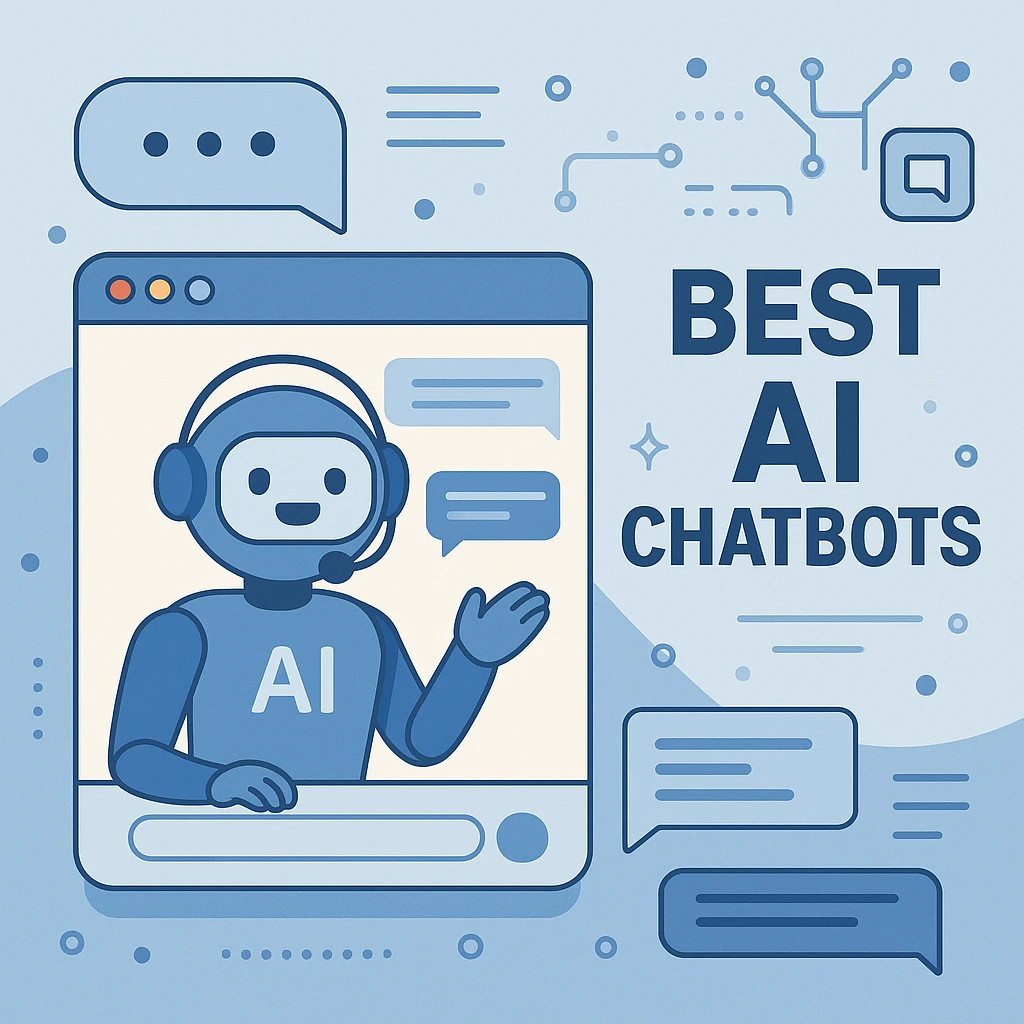
Chatbots
AI chatbots have quickly evolved from simple assistants into powerful, multi-purpose tools used by millions of people every day...

Image Generators
AI image generators are revolutionizing the way creatives, marketers, and developers produce visual content by transforming text prompts into detailed, customized...

Writing Assistants
AI writing assistants have become indispensable tools for anyone who writes — from students and bloggers to business professionals and marketers...
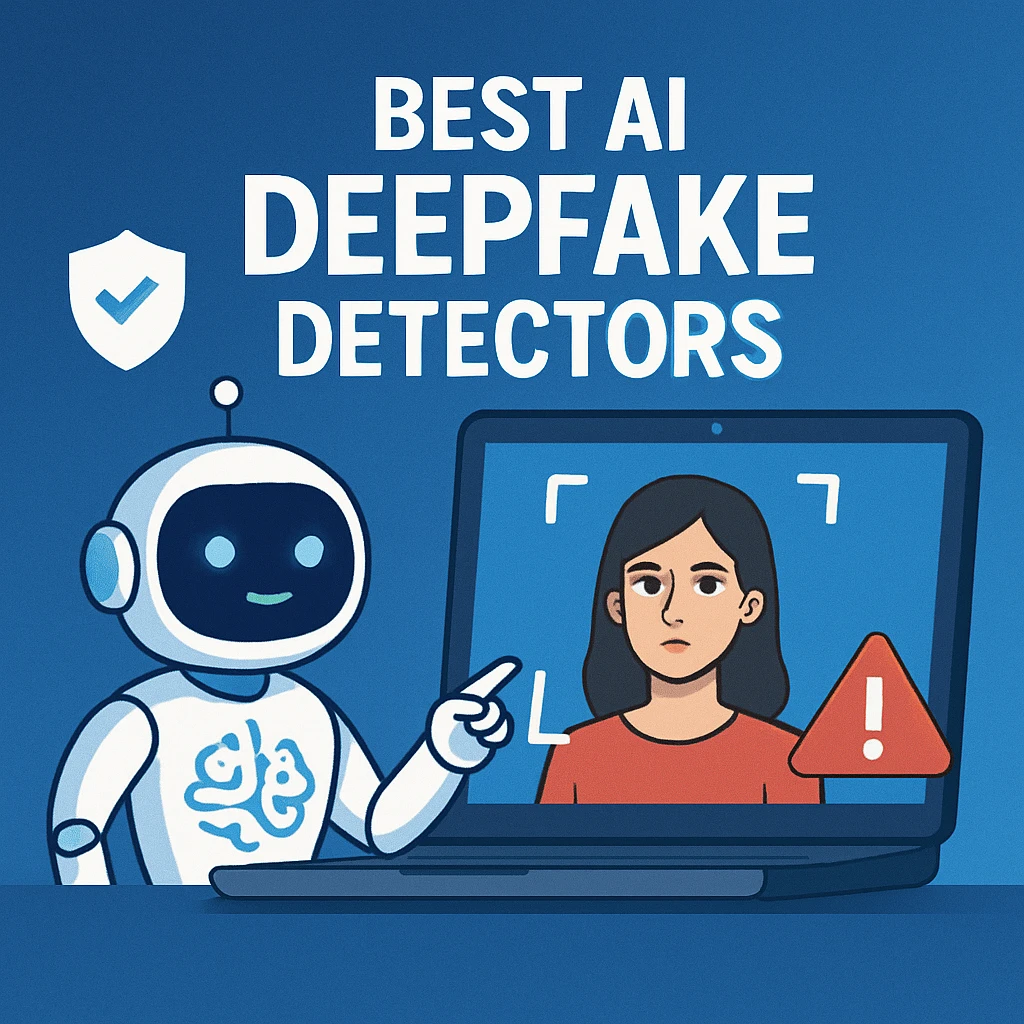
Deepfake Detection
As deepfake technology becomes more advanced and accessible, detecting AI-manipulated content is now a critical challenge across journalism, education, law, and...

Productivity & Calendar
AI productivity and calendar tools have become essential for professionals, entrepreneurs, and students looking to make the most of their time without getting overwhelmed...
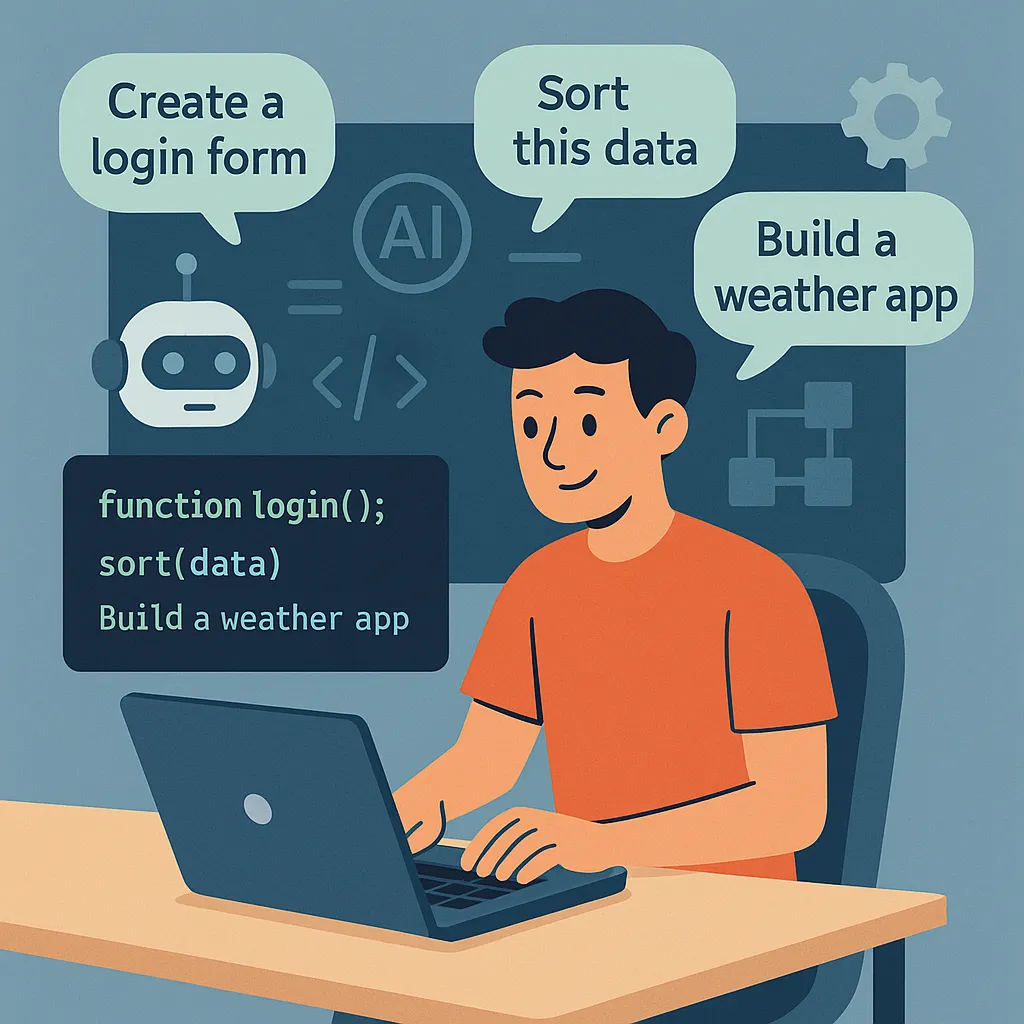
Natural Language To Code
Natural language to code tools are transforming software development by enabling users to build apps, websites, and workflows without needing advanced programming...
Blog
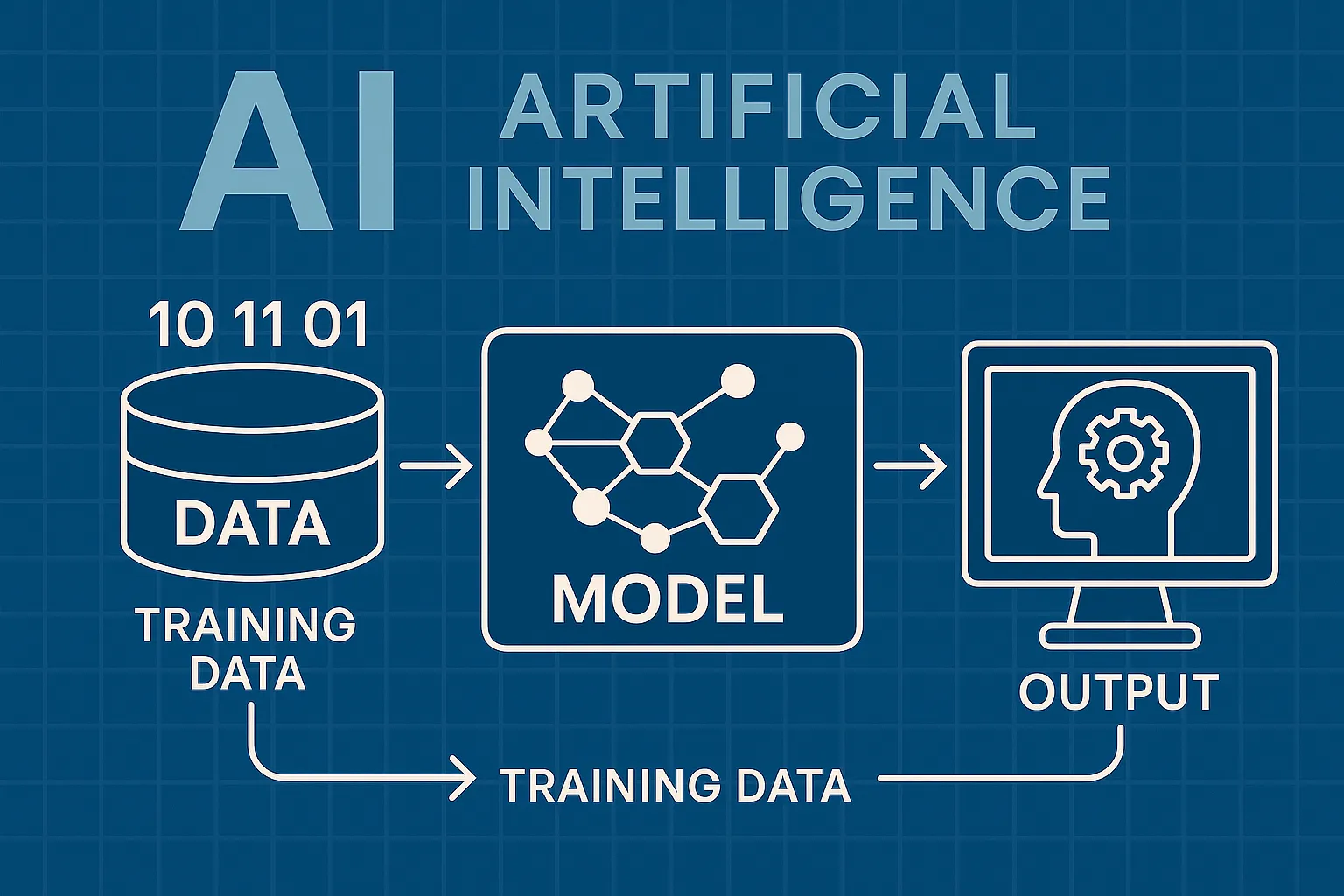
How AI Actually Works
Understand the basics of how AI systems learn, make decisions, and power tools like chatbots, image generators, and virtual assistants.

What Is Vibe Coding?
Discover the rise of vibe coding — an intuitive, aesthetic-first approach to building websites and digital experiences with help from AI tools.
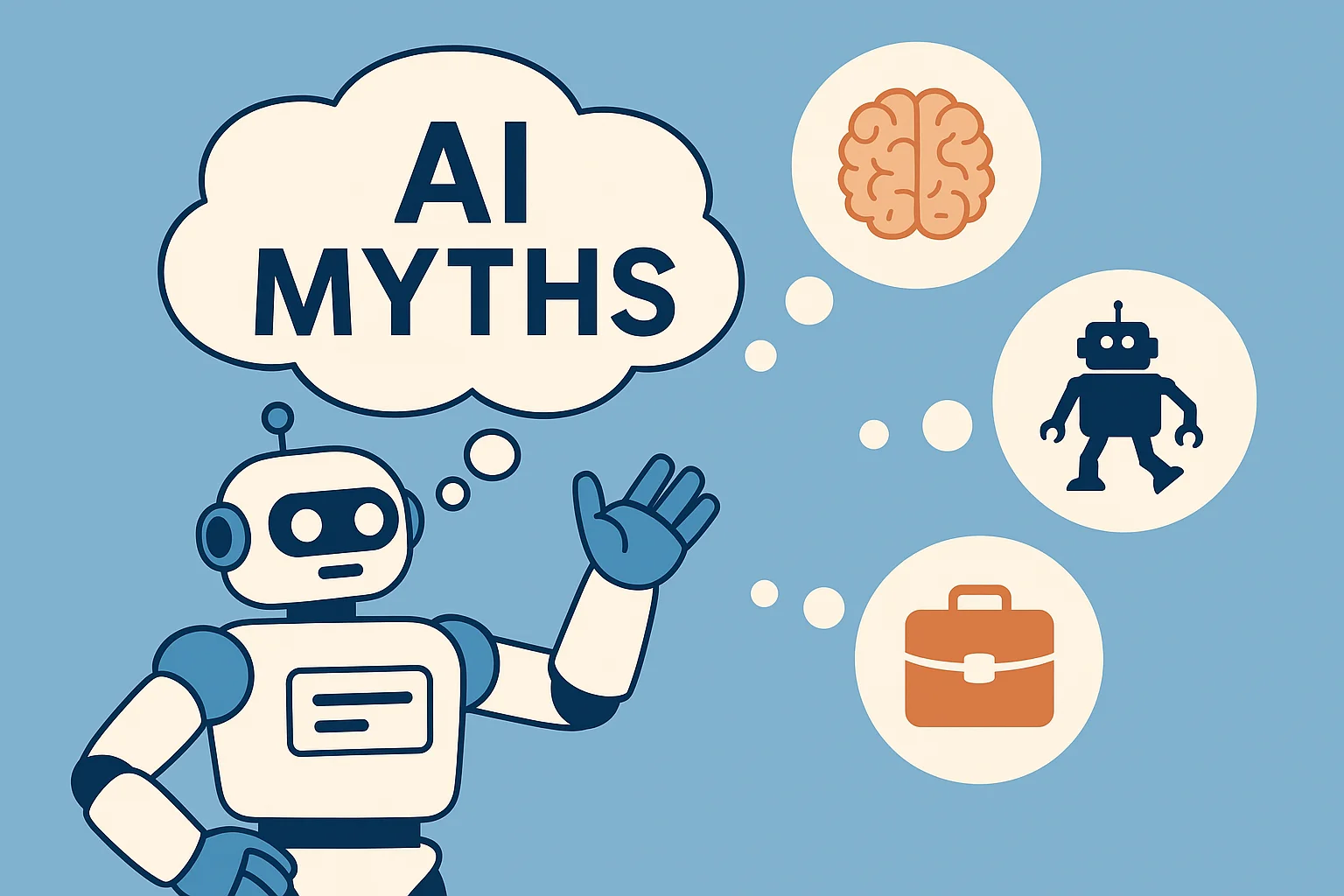
7 Common Myths About AI
Think AI is conscious, infallible, or coming for every job? This post debunks the most widespread misconceptions about artificial intelligence today.

The Future of AI
From generative agents to real-world robotics, discover how AI might reshape society, creativity, and communication in the years ahead.

How AI Is Changing the Job Market
Will AI replace your job — or create new ones? Explore which careers are evolving, vanishing, or emerging in the AI-driven economy.

Common Issues with AI
Hallucinations, bias, privacy risks — learn about the most pressing problems in current AI systems and what causes them.